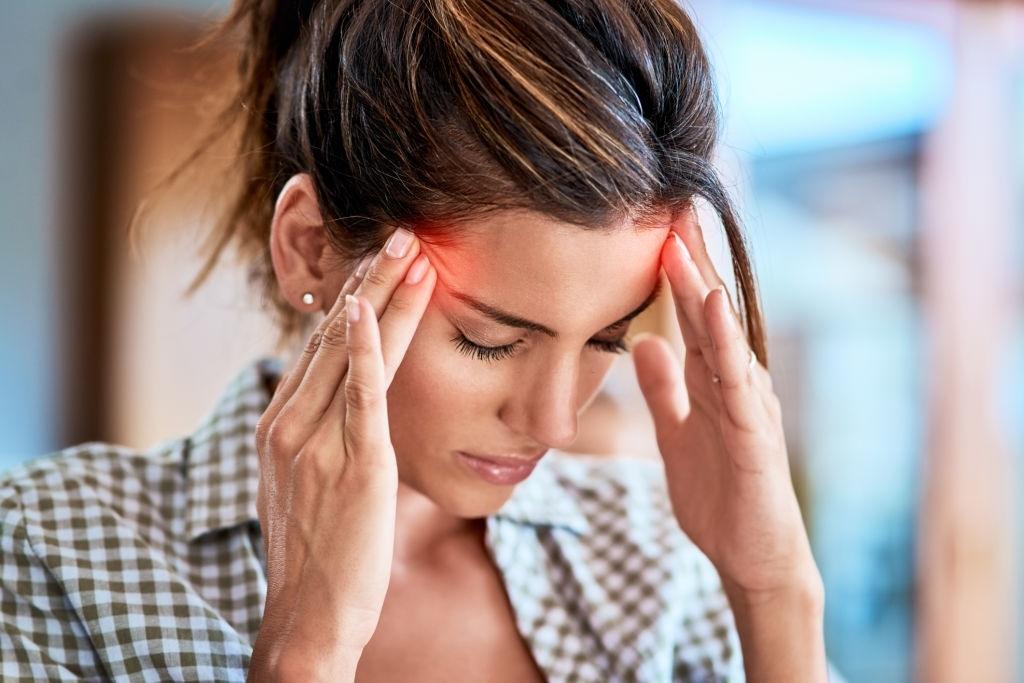Migraine is a condition where a patient complains of severe headache that happens in stages and recurs accompanied by other symptoms such as vomiting and nausea. Sensory changes called an aura might occur right before the onset of the headache. The triggers, symptoms, severity, and frequency differs among individuals where some might report at least one episode weekly, while others experience them less often. Research indicates that approximately 15% of the US adult population experienced a relentless headache or migraine within the past three months when the study was done.
Causes and risk factors
Currently, there is no known cause of severe headaches. Postulated theories point to the changes in brain activity by affecting the mechanism of nerve communication, chemical balance, and blood vessel. Genetics has been implicated as a risk factor for developing migraines apart from other illnesses such as bipolar, obsessive-compulsive, and sleep disorders, anxiety, depression, and fibromyalgia.
Physicians usually target the migraine triggers by asking patients to keep a diary where they record the time and day of the attack, warning signs, symptoms, drugs they took, and when the attack subsided. Hormonal changes, emotional triggers, physical causes like poor posture, dietary factors like chocolate, medications, and environmental factors like bright lights are triggers of a migraine. Currently, migraines have no cure, but only treatment options are available to minimize the severity and frequency of attacks. Treatment may be used to relieve migraine symptoms that make it difficult for someone to study or work.
Adopt a new lifestyle
Since a migraine usually happens as a response to a specific trigger, you can identify them and take necessary action to minimize the chances of the reoccurrence of an attack. Therefore, you should drink enough water, get good quality sleep, and exercise regularly. Additionally, you should avoid particular food like processed meat, especially those containing tyramine such as yeast extracts and smoke fish, caffeinated products, and chocolate. You should avoid missing or delaying meals because it can trigger a migraine.
It would help if you reduced or avoid stress by practicing relaxation techniques like yoga and meditation. Additionally, yoga is a healthy exercise, unlike heavy weightlifting that might trigger migraines. You should avoid sleeping beyond eight hours because it can also be an elicitor, a migraine.
Medications to manage symptoms
You can start by using over-the-counter pain reliever such as ibuprofen, acetaminophen, and naproxen to prevent migraine symptoms from worsening. To manage the other symptoms, you can take triptans like sumatriptan that aids in reversing brain chemical changes that might cause a migraine. Antiemetics can help you control vomiting and nausea while gepants block CGRP, which is an inflammatory factor. However, you should not overuse these medications because they can cause a rebound headache.
Hormonal contraceptives such as combined contraceptive pills, progesterone-only injections, and estrogen patches can relieve menstrual-related headaches. However, patients experiencing an aura should avoid hormonal contraceptives as a treatment option because it can cause a stroke.
Which Drugs to minimize episodes
Topiramate is a drug used in managing epilepsy, while propranolol is a drug commonly used for hypertension and angina but has been exploited in preventing migraines. Amitriptyline is an antidepressant approved for treating migraines, while Botulinum toxin type A (Botox) is a neurotoxin recommended for individuals with chronic migraine. These drugs have prolonged onset of action that might take weeks.
Home remedies
Some of the home remedies one can use to alleviate the manifestations of a migraine include wearing a face covering, or a hat. Additionally, staying in a darkened and quiet room away from elicitors such as bright lights, strong odors, and noise aids relieve migraine symptoms. You can eat food rich in magnesium and riboflavin, butterbur, and feverfew helps prevent attacks. Neck exercises and acupuncture can help alleviate migraines in the event medications do not work or are unsuitable.


